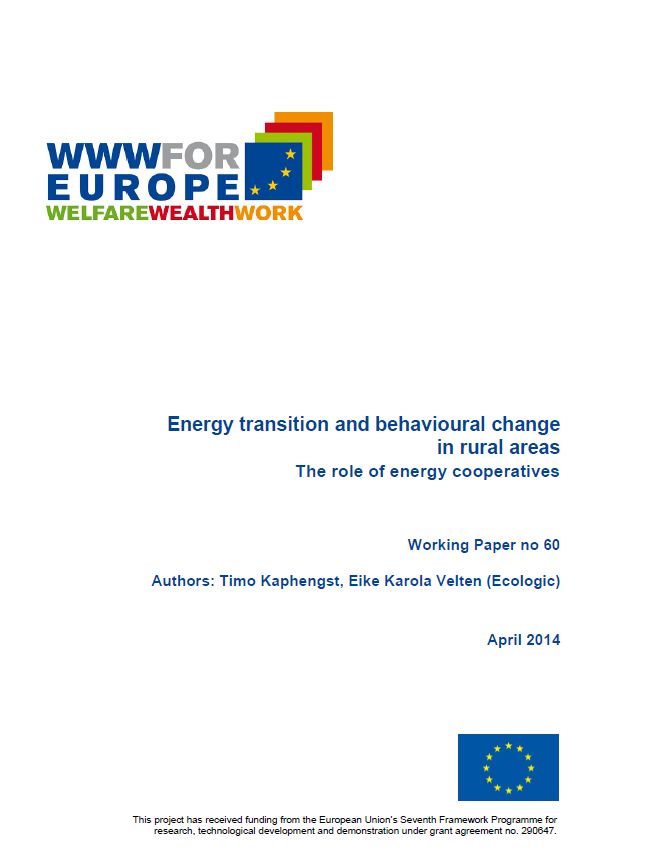The project "Welfare, Wealth and Work for Europe – WWWforEurope" seeks to develop a conceptual framework for a socio-ecological transition in the context of the Europe 2020 strategy. The project brings together a large interdisciplinary consortium of 33 research institutions in 12 European countries. Leading a workpackage in this project, the Ecologic Institute conducts a case study in Northern Bavaria in order to investigate the role of energy cooperatives in the German energy transition and in which way their organisational structure could be beneficial for participation, the motivation of people and for behavioural change.
Some of the main research questions, wwwforEurope is working on, include:
- What kind of development strategy should Europe opt for in the face of the financial and economic crisis and the big challenges ahead: globalisation, demographic shifts, climate change and new technologies?
- What kind of strategy will guarantee welfare, wealth and work for Europe in the long term?
- And which governance reforms are needed to implement such a strategy?
The project is divided in 5 research areas that reflect vital fields for policy action. The Ecologic Institute is mainly working in Area 2, which addresses the environmental and biophysical dimension of socio-ecological transition of Europe`s economy. The area also provides evidence for designing policies aimed at minimising the conflict between employment, equity and sustainability, using welfare indicators beyond traditional GDP measures.
Using the example of the German “Energiewende”, the case study in Northern Bavaria should unveil the characteristics of ongoing transition processes. Different energy cooperatives aiming for establishing renewable energies in rural areas will be investigated based on a participatory network analysis, semi-structured interviews and desk-based research. The case study is available for download.
The guiding research question was, in how far energy cooperatives can be considered a best practice example for participatory involvement in transition processes and in how far this has an influence of the inner drivers/motivations of actors in this transition.





